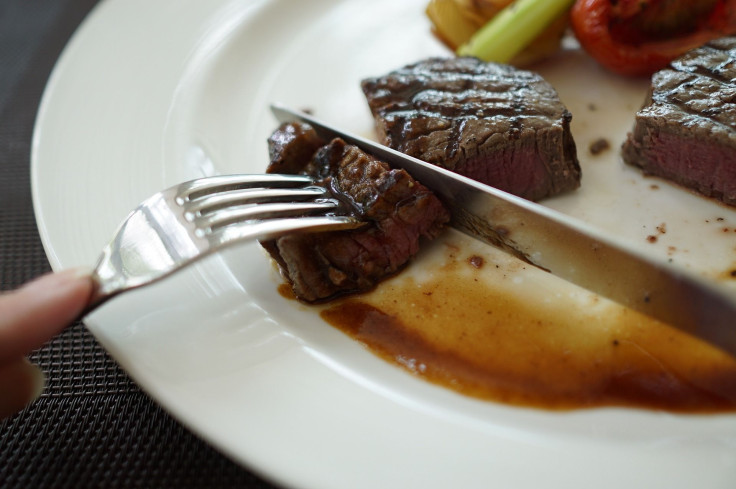WHO Confirms Eating Meat Causes Cancer, But How Did This Once Healthy Food Become So Deadly?

On Monday, the World Health Organization confirmed that our high-meat diets are in fact killing us. According to the WHO report, processed meats like sausage and bacon undoubtedly cause cancer, and red meats, such as beef and lamb, most probably do so as well. But why is a food that equipped our ancestors with the large brains needed to reach the top of the food chain now killing us?
This month, 22 scientists from 10 countries met at the International Agency for Research on Cancer (IARC) in Lyon, France, to assess more than 800 studies on the association between cancer and meat consumption in order to evaluate the carcinogenicity of high-meat diets. Their results are now published in the online journal The Lancet. For their report, the team looked specifically at the health effects of eating processed meat (meat that has been transformed from its original state, such as bacon and sausage), and the effects of eating red meat (unprocessed animal muscle, such as beef, pork, and lamb). In order to evaluate these risks, the researchers investigated the association of cancer and meat consumption in several countries and also looked into how rat populations are affected by these diets.
Based on their research, a majority of the group “concluded that there is sufficient evidence in human beings for the carcinogenicity of the consumption of processed meat,” with the report specifically naming ham, hot dogs, sausages, and jerky in this category. In addition, the team classified the consumption of red meat as “probably carcinogenic to humans,” but cited that there was “inadequate evidence in experimental animals” to definitively prove this link. This correlation between cancer and eating processed meats was strongest seen in the case of colon and stomach cancer, although eating red meat was also linked to pancreatic and prostate cancer.
The move from a plant-based to more meat-based diet is largely credited as the pivotal step in human evolution. The protein and calories available in meat allowed humans to dedicate more energy to building bigger brains, which in turn allowed us to become the planet’s most dominant creature, NPR reported. However, although meat-eaters commonly use this fact to back their carnivorous decision, there are many key differences between how our ancestors ate meat versus how we do so now that make the comparison ineffective.
First off, we no longer prepare our meat the same way our ancestors did 2.3 million years ago. According to the WHO report, one of the major culprits for meat's carcinogenic properties is its preparation. Common meat processing techniques, such as curing and smoking, can often result in the formation of carcinogenic chemicals. For red meat, although cooking makes meat both taste better and easier to digest, it can also produce known or suspected carcinogens. High temperature cooking, such as pan-frying, grilling, or barbecuing were identified in the report as producing the highest quality of these chemicals.
In addition, the cuts of meat that we consume today also look different from those of our ancestors. For example, today most cultures consume only the muscle meats, but hunter-gatherers were known to eat all parts of the animal, including the organs. Eating only muscle can cause an imbalance, giving meat-eaters an overload of protein and iron without the addition of nutrients found in other body parts. Above all, our ancestors, and even our grandparents for that matter, did not eat nearly as much meat as we are eating today. According to the Earth Policy Institute, U.S. meat consumption rose from about 80 pounds annually per person in 1940 to over 180 pounds person person in 2012.
Although the study’s results are surprising, the researchers are not suggesting a complete abstinence from meat, but rather explain that their findings "support current public health recommendations to limit meat intake," Dr. Christopher Wild, director of the IARC, said in a statement, NBC reported.
"For an individual, the risk of developing colorectal cancer because of their consumption of processed meat remains small, but this risk increases with the amount of meat consumed," said IARC's Dr. Kurt Straif, NBC reported.
Source: Bouvard V, Loomis D, Guyton K, et al. Carcinogenicity of consumption of red and processed meat. The Lancet Oncology. 2015.
Published by Medicaldaily.com



























